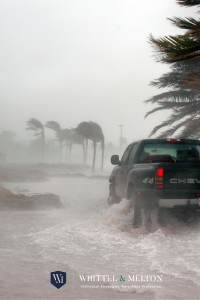As Hurricane Idalia makes its way through Florida, already causing flooding in some coastal areas, parts of the State’s Gulf Coast are expected to see deadly storm surge that officials are describing as non-survivable.
In addition, a tornado watch is also in effect for central and western Florida, including the Tampa Bay area, until 6 a.m. Wednesday. Tornadoes are frequently connected with the outer bands of tropical systems that make landfall.
Idalia is anticipated to strengthen to a Category 3 hurricane before reaching the Big Bend region, which contains Taylor County and is located just southeast of the state capital, Tallahassee. Idalia will bring strong gusts and a storm surge of 10 to 15 feet to the area, which is enough water stacked to reach halfway up an average building’s second level.
Evacuation orders are mandatory in at least 28 counties. You can view them here.
The National Oceanic and Atmospheric Administration identifies storm surge as the reason for most storm evacuations and the cause for about half of all hurricane-related fatalities.
If you are in an evacuation zone, our Florida Hurricane and Storm Damage Lawyers at Whittel & Melton urge you to get to safety. Remember, you do not have to leave the State – sometimes you just need to travel tens of miles (not hundreds) to get to a safer spot.
After Idalia hits, and you can make it safely back to your home, assessing the damage is an important task. We have a few tips that can make filing an insurance claim less stressful.
 Fully evaluate your losses: The goal of insurance is to compensate you for your actual losses. Making a thorough record of your losses, complete with images, estimated values, purchase dates, and information on the damage sustained, will help to support your claim.
Fully evaluate your losses: The goal of insurance is to compensate you for your actual losses. Making a thorough record of your losses, complete with images, estimated values, purchase dates, and information on the damage sustained, will help to support your claim.- Report the damage right away: Waiting too long could mean you lose money. As soon as it is safe to do so, make the initial report to your insurance provider.
- Know the details of your insurance policy: Different types of hurricane insurance exist. Knowing when temporary solutions can help or when they might undermine your long-term claim is important. Review the specifics of your policy.
- Keep a detailed log of repairs: Maintain thorough records of the repairs you have made and the associated charges.
- Speak with our Florida Hurricane and Storm Damage Lawyers at Whittel & Melton: You can get help from our Hurricane Insurance Claims Lawyers to ensure that your payment is accurate and thorough. If the insurance provider rejects your claim unfairly, we can also assist you in taking the proper legal action to challenge them.
You can stay up to date on Idalia here. If you need any help after the storm, we are available 24/7 to walk you through the claims process. You can call us anytime statewide at 866-608-5529 or contact us online.
 Florida Personal Injury Lawyers Blog
Florida Personal Injury Lawyers Blog

